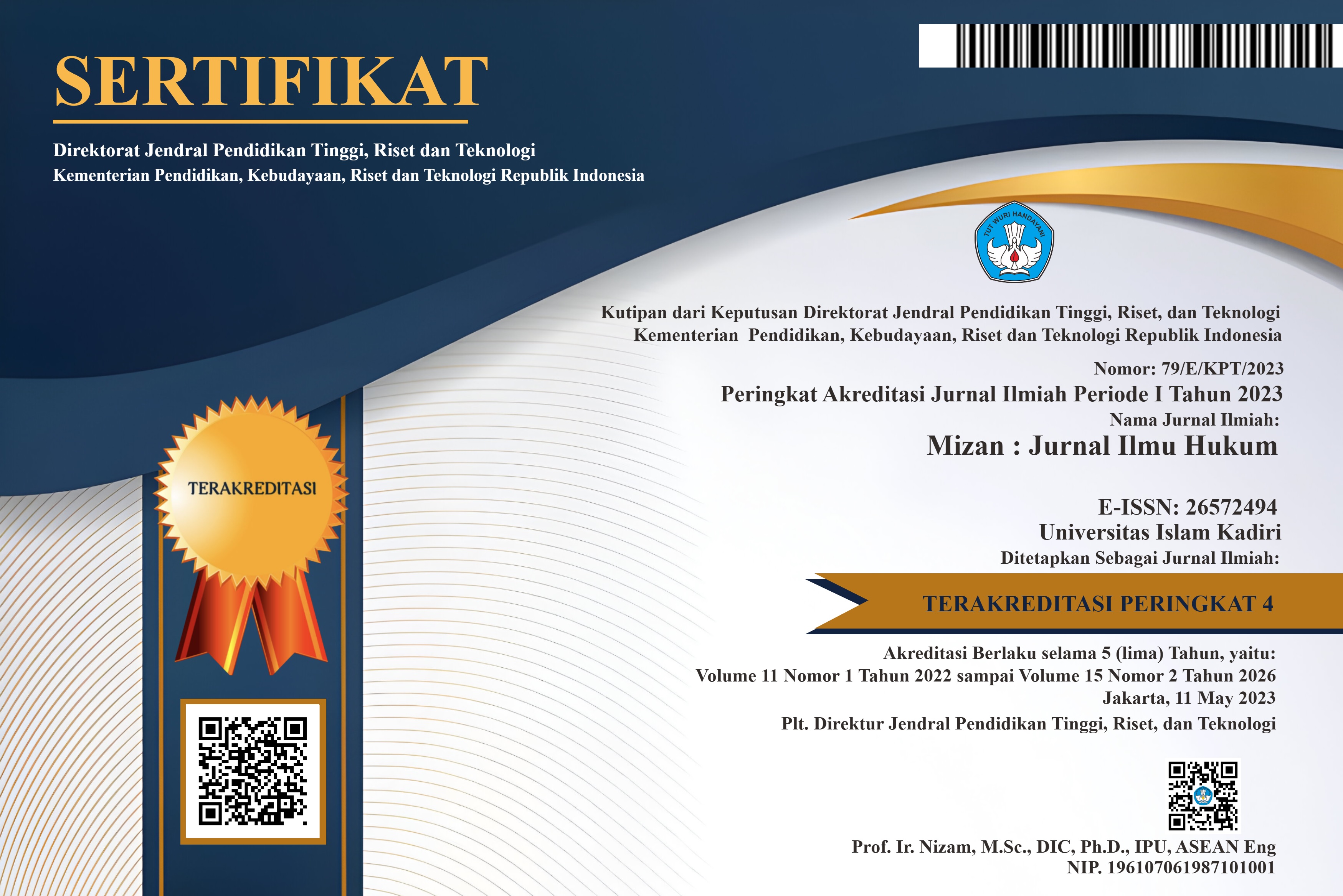LAW ENFORCEMENT TERKAIT DENGAN KEWAJIBAN PENGGUGAT DALAM MEMBUKTIKAN ALASAN GUGAT CERAI (Studi Kasus Nomor Putusan: 1947/Pdt.G/2022/PA.Btm)
Abstract
Marriage is a common event in the world community and in Indonesia. Every marriage is certainly expected to run smoothly until the end of life and has the goal of building a family or household that is sakinah, mawaddah, and rahmah. However, that does not guarantee that there will be no divorce in a country, especially Indonesia. Divorce is considered to be the final solution for families or households that can no longer build a harmonious atmosphere. Divorce can be filed by both husband and wife, the wife who files for divorce is known as a contested divorce and while the lawsuit from the husband is known as a talak divorce. In a divorce, it must be based on the reasons as stipulated in the Legislative Regulations, if the lawsuit is filed at the District Court, the legal basis that applies is the Compilation of Islamic Law. To compile this research using a normative juridical method which is then compiled with qualitative data, namely in the form of words using a case study approach to the decision of the Batam City Religious Court. The application for divorce must be based on the grounds for divorce regulated in Article 116 KHI and the arguments presented in the lawsuit must be proven using documentary evidence and witness statements. If this is not proven, the court may impose the principle of risk of proof where the party giving the argument cannot prove its argument so that it can be defeated in the case or in other cases it is not used as a consideration for the Panel of Judges. In the verstek decision of the Religious Court, the plaintiff was deemed unable to prove the argument for his lawsuit related to the reason for the divorce caused by the defendant having an affair with another woman, because the plaintiff did not prove his argument. So that what the judge considers is the condition of the household which is no longer harmonious so that it cannot build a household that is sakinah, mawaddah, and rahmah as well as the plaintiff and the defendant who no longer live in one house.
References
Assyidiky, H. (2020). Analisis Terhadap Alasan Perceraian oleh PNS di Lingkungan Kemenag Tanah Datar dalam Perspektif Hukum Islam dan PP No 10 Tahun 1983 JO PP No 49 Tahun 1990. Skripsi. Batusangkar: Institut Agama Islam Negeri Batu Sangkar.
Armia, M.S. (2022). Penentuan Metode dan Pendekatan Penelitian Hukum. Aceh: Lembaga Kajian Konstitusi Indonesia.
Basyir, A.A. (2004). Hukum Perkawinan Islam. Yogyakarta: UII Press.
Jurnal
Benuf, K., dan Azhar, M. (2020). Metodologi Penelitian Hukum sebagai instrumen Mengurai Permasalahan Hukum Kontemporer. Jurnal Gema Keadilan, 7(1).
Fitri, Y., Jamaluddin., & Faisal. (2019). Analisis Yuridis Perceraian di Luar Pengadilan menurut Undang-Undang Nomor 1 Tahun 1974 tentang Perkawinan dan menurut Pendapat Ahli Fikih Islam. Suloh: Jurnal Fakultas Hukum Universitas Malikussaleh, 7(1).
Manna, N.S., Doriza, S., dan Oktaviani, M. (2021). Cerai Gugat: Telaah Penyebab Perceraian pada Keluarga di Indonesia. Jurnal Al-Azhar Indonesia Seri Humaniora, 6(1).
Muhammad, M.S., dan Yulmina. (2019). Multi Alasan Cerai Gugat: Tinjauan FIkih Terhadap Cerai Gugat Perkara Nomor: 0138/Pdt.G/2015/MS.Bna pada Mahkamah Syar’iyah Banda Aceh. Samarah: Jurnal Hukum Keluarga dan Hukum Islam, 3(1).
Rais, I. (2014). Tingginya Angka Cerai Gugat (Khulu) di Indonesia: Analisis Kritis Tehadap Penyebab dan Alternatif Solusi Mengatasinya. Jurnal Al-Adalah, 12(1).
Peraturan Perundang-undangan
Kitab Undang-Undang Hukum Perdata.
Kompilasi Hukum Islam
Undang-Undang Nomor 01 Tahun 1974 tentang Perkawinan









